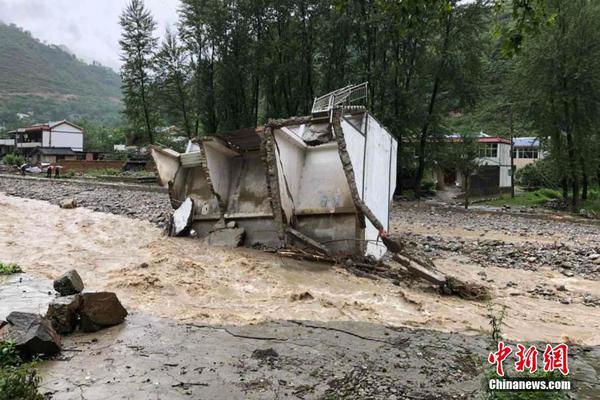Ancient rocks in northwestern Canada may contain the oldest evidence of life on hd xxx sex videosEarth.
Scientists have discovered remains of microorganisms that likely thrived around 3.8 billion years ago near volcanic vents on the seafloor, according to a study published Wednesday in Nature.
SEE ALSO: Scientists are firing lasers at dinosaur fossils, and the result is awesomeIron-dwelling bacteria left behind tiny, rusty filaments and tubes, which were found encased in layers of quartz in the Nuvvuagittuq supracrustal belt near Quebec.
"The fact we unearthed them from one of the oldest-known rock formations suggests we've found direct evidence of one of Earth's oldest life forms," Dominic Papineau, the study lead and a lecturer at University College London (UCL)'s Earth Sciences department, said in a press release.
 Original image has been replaced. Credit: Mashable
Original image has been replaced. Credit: Mashable "This discovery helps us piece together the history of our planet and the remarkable life on it, and will help to identify traces of life elsewhere in the universe," he said. Most likely, that means searching for evidence of life on Mars.
Prior to this study, the oldest known microfossils were found in western Australia and dated at around 3.5 billion years ago. Scientists also uncovered a set of 3.7 billion-year-old microbial remains found in Greenland, although the evidence for life in the Arctic formations is not nearly as solid as that found in Australia.
Scientists from Canada, the U.K., the United States, Norway and Australia teamed up on the Canadian fossil study.
They searched for fossil evidence in the Nuvvuagittuq belt because it contains some of the Earth's oldest known sedimentary rocks, which were likely formed by deep-sea hydrothermal vents that spewed out scalding water laden with minerals, including iron.
These vents may have hosted bacterial life between 3.8 billion and 4.3 billion years ago, not long after the Earth formed.
Scientific evidence suggests our planet had liquid water at its surface around this time -- and possibly so did Mars.
 Original image has been replaced. Credit: Mashable
Original image has been replaced. Credit: Mashable The fact that bacterial life was gushing from deep-sea vents in Earth's earliest years suggests the same might've been happening on the red planet, said Matthew Dodd, a doctoral student at the London Center for Nanotechnology and the study's first author.
The fossil find in Canada poses "exciting questions for extra-terrestrial life," he said in the press release. "We expect to find evidence for past life on Mars [4 billion] years ago, or if not, Earth may have been a special exception."
(Editor: {typename type="name"/})
 Nishioka vs. Alcaraz 2025 livestream: Watch Australian Open for free
Nishioka vs. Alcaraz 2025 livestream: Watch Australian Open for free
 All hail James Comey's 'resting Comey face'
All hail James Comey's 'resting Comey face'
 Rachel McAdams and Will Ferrell sparkle in 'Eurovision Song Contest'
Rachel McAdams and Will Ferrell sparkle in 'Eurovision Song Contest'
 Once upon a time Apple made sneakers and they could cost you $15K
Once upon a time Apple made sneakers and they could cost you $15K
Tips for Playing PlayerUnknown's Battlegrounds
Remember Microsoft Stores? Well, they're closed forever now.
 RIP, Microsoft Stores.On Friday, Microsoft announcedthat it was permanently closing all of its physi
...[Details]
RIP, Microsoft Stores.On Friday, Microsoft announcedthat it was permanently closing all of its physi
...[Details]
Good internet samaritan will tweet your rude subtweet so you don't have to
 When the urge to subtweet is too great to bear, step back, take a deep breath and DM someone who'll
...[Details]
When the urge to subtweet is too great to bear, step back, take a deep breath and DM someone who'll
...[Details]
Turn your backyard into a summer oasis
 Sun's out, fun's in. Take advantage of long summer days by creating unforgettable memories in your o
...[Details]
Sun's out, fun's in. Take advantage of long summer days by creating unforgettable memories in your o
...[Details]
We'll always, er, sorta, have the Paris Climate Agreement
 The U.S. appears poised to remain in the Paris Climate Agreement in name only, after senior members
...[Details]
The U.S. appears poised to remain in the Paris Climate Agreement in name only, after senior members
...[Details]
Playing 'Breath of the Wild' wrong is my social distancing escape
 When I play video games, I have a bad habit of taking quest instructions too seriously. When they te
...[Details]
When I play video games, I have a bad habit of taking quest instructions too seriously. When they te
...[Details]
Now Trump wants solar panels to pay for the border wall
 Remember that time the American President insisted he'd get a wall built along the entire Mexican bo
...[Details]
Remember that time the American President insisted he'd get a wall built along the entire Mexican bo
...[Details]
'To me, they're not even people:' Eric Trump attacks his dad's critics
 To Eric Trump, his father's critics are some kind of subhumans. The second son of the president, who
...[Details]
To Eric Trump, his father's critics are some kind of subhumans. The second son of the president, who
...[Details]
 A glance at the best self-emptying robot vacuum deals ahead of Prime Day Budget pick
...[Details]
A glance at the best self-emptying robot vacuum deals ahead of Prime Day Budget pick
...[Details]
Train for the resistance like Ruth Bader Ginsburg
 For Ruth Bader Ginsburg, training for the resistance requires a resistance band.Supreme Court Justic
...[Details]
For Ruth Bader Ginsburg, training for the resistance requires a resistance band.Supreme Court Justic
...[Details]
Best Apple iPad Mini deal: Save $100 at Best Buy

Playing 'Breath of the Wild' wrong is my social distancing escape

接受PR>=1、BR>=1,流量相当,内容相关类链接。